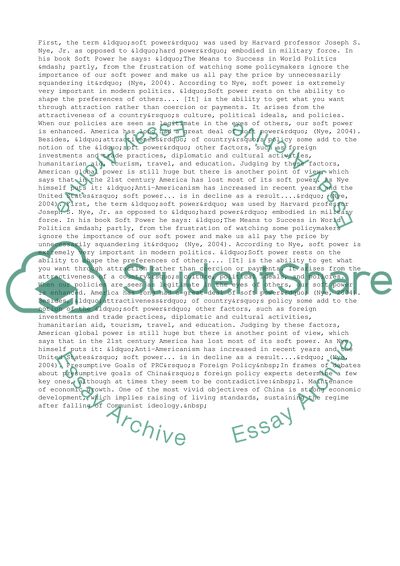Cite this document
(What does Chinese Global Conduct Indicate about China's Strategy Dissertation - 1, n.d.)
What does Chinese Global Conduct Indicate about China's Strategy Dissertation - 1. Retrieved from https://studentshare.org/business/1750984-international-security-in-the-21st-century
What does Chinese Global Conduct Indicate about China's Strategy Dissertation - 1. Retrieved from https://studentshare.org/business/1750984-international-security-in-the-21st-century
(What Does Chinese Global Conduct Indicate about China'S Strategy Dissertation - 1)
What Does Chinese Global Conduct Indicate about China'S Strategy Dissertation - 1. https://studentshare.org/business/1750984-international-security-in-the-21st-century.
What Does Chinese Global Conduct Indicate about China'S Strategy Dissertation - 1. https://studentshare.org/business/1750984-international-security-in-the-21st-century.
“What Does Chinese Global Conduct Indicate about China'S Strategy Dissertation - 1”, n.d. https://studentshare.org/business/1750984-international-security-in-the-21st-century.


